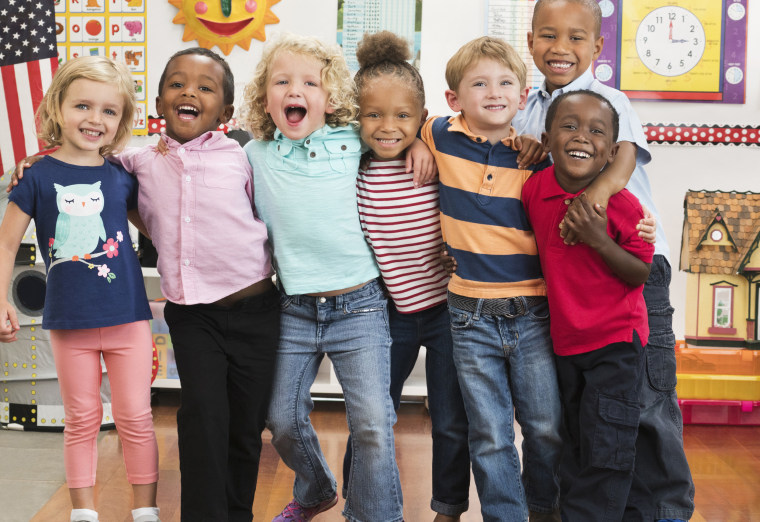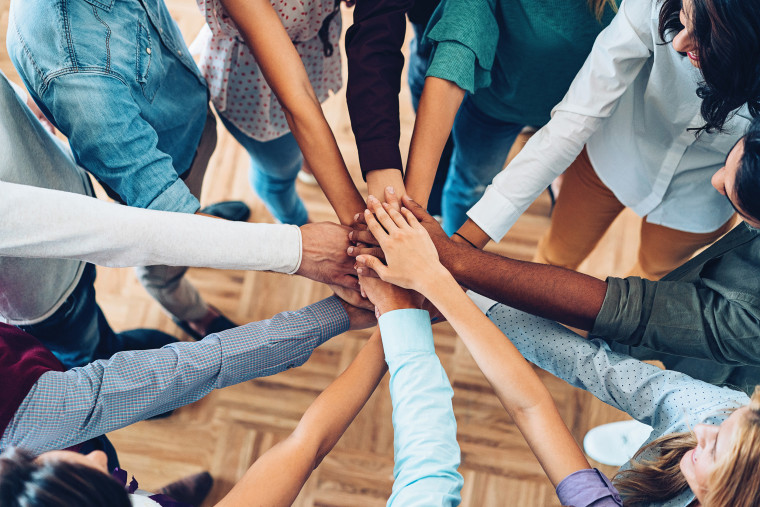Some folks are able to watch the latest racist incident or school shooting unfold on the news late at night, roll over and go right to sleep. Yet, plenty of others can’t watch the news past dinnertime, for the pain and agony they witness seeps too deeply into their skin and all hope for sleep is lost.
The cause for taking the suffering of others so personally? The blessing and curse of empathy.
According to Dictionary.com, “empathy” is described as “the psychological identification with or vicarious experiencing of the feelings, thoughts or attitudes of another.” Roman Krznaric, author of "Empathy: Why it Matters and How to Get It," describes the difference between empathy and sympathy: “Sympathy is feeling pity or sorry for someone, but without that extra step of grasping what that person is going through, or how they are experiencing the world,” he says.
Being an 'empath' versus being empathetic
There’s also a difference between feeling empathy for others and being an actual “empath.” Judith Orloff, MD, author of "The Empath’s Survival Guide: Life Strategies for Sensitive People," identifies as an empath and describes them as “emotional sponges who are so sensitive, they tend to take on the stress of the world.”
The gift of feeling empathy, or being an empath, is that you care deeply for others and want to help, says Orloff. However, the downside of empathy is it can be mighty exhausting. “Empaths have an extremely sensitive, hyperreactive neurological system,” she explains. “We don’t have the same filters that other people do to block out stimulation. As a consequence, we absorb into our own bodies both the positive and stressful energies around us.”
Is empathy a skill or an ability you're born with?
Orloff says the ability to feel empathy is a little bit psychological tendency and a little bit neurological wiring. “It’s hypothesized that empaths may have hyperactive mirror neuron systems (the compassion neurons in the brain) and they work on overdrive feeling compassion,” she says.
According to Krznaric, your capacity for empathy is likely a question of nature and nurture. “Research suggests that about 50 percent of our empathic capacities are genetically inherited and the rest we can learn, because empathy is not simply a matter of wiring,” he explains, adding that adversity can also lend itself to the development of an empathetic nature. “I recently met a stand-up comic who has lived with cerebral palsy all her life. She has an amazing empathy with people who not only have physical disabilities, but who get marginalized by society in other ways,” he says.
Orloff also mentioned how adversity contributes to an empathetic nature: “A portion of empaths I’ve treated have experienced early trauma such as emotional or physical abuse, or they were raised by alcoholic, depressed or narcissistic parents, potentially wearing down the usual healthy defenses that a child with nurturing parents develops.”
Empathy can be a struggle in this society
David Sauvage, an empath performance artist who consults with corporations and entrepreneurs on building more empathetic cultures, says the basis of empathy is emotional self-awareness — which isn’t a skill fostered by today’s achievement-driven culture.
“The average person in our culture doesn’t have much empathy toward others because we prioritize everything other than emotional well-being,” he explains. “How often are boys told to ‘suck it up?’ How often are girls told they’re ‘acting crazy?’ How many times during the course of the day do we feel like we shouldn’t feel a certain way, so we hide our sadness only to feel shame around that sadness? There’s no healthy balance between the negation of people’s feelings and the acceptance of people’s feelings. The only way to cope is to disassociate,” explains Sauvage.
The average person in our culture doesn’t have much empathy toward others because we prioritize everything other than emotional well-being.
Can empathy really be taught?
Krznaric says empathy is a skill that you can learn, like riding a bike or driving a car, and that some learn it really early in life. “It's easier to develop the cognitive capacity to make that imaginative leap into someone else's perspective,” he says.
To help her patients relate to each other, Orloff puts them into an empathy training program. “It can be as simple as getting people into the habit of asking others how they are and actually listening to the answer,” she says.
Empathy is a skill that you can learn, like riding a bike or driving a car, and that some learn it really early in life.
Yet, Sauvage says teaching empathy is rarely a straightforward process. “If someone both doesn’t understand what it means to be another person — and they don’t care — you can’t just ask them to close their eyes and do it. They will shut off,” he explains. “You can’t feel for others if you’re shut off from your own emotional experience.”
How can we promote empathy?
Though empathy is necessary to forge a better understanding between people of different cultures and belief systems, science says our brains may be wired to empathize more with people who look like us. A recent study published in Trends of Cognitive Science examined brain scans to better understand how the brain works in relation to racial bias and empathy. Consistently, people had increased neural responses to the perceived pain of the same-race compared with other-race individuals in many areas of the brain, at different times.
All the more reason for empathy to taught at a young age. As a leading example, Krznaric mentioned Roots of Empathy, a Canadian-based global non-profit that teaches young, school-aged children to empathize with each other. According to their research summary, children who participated in the program were approximately 50 percent less lightly to fight.

Perhaps this is why Orloff describes empathy as “the medicine that will save the world.” “When someone feels like you are empathizing with them instead of judging them, the communication between you will be dramatically improved,” she says. Or, as Sauvage points out, we could shift wellbeing to the forefront of our priorities. “If we want to build a culture of empathy, we have to have a culture of emotional literacy,” he says. Of course, this requires actually listening to the answer when you ask how someone is.
More Social Studies
- The secret to stronger friendships: How to build better bonds
- 5 kinds of office jerks: Are you one of them?
- How to tell if someone is lying to you, according to behavioral experts
Want more tips like these? NBC News BETTER is obsessed with finding easier, healthier and smarter ways to live. Sign up for our newsletter and follow us on Facebook, Twitter and Instagram.
